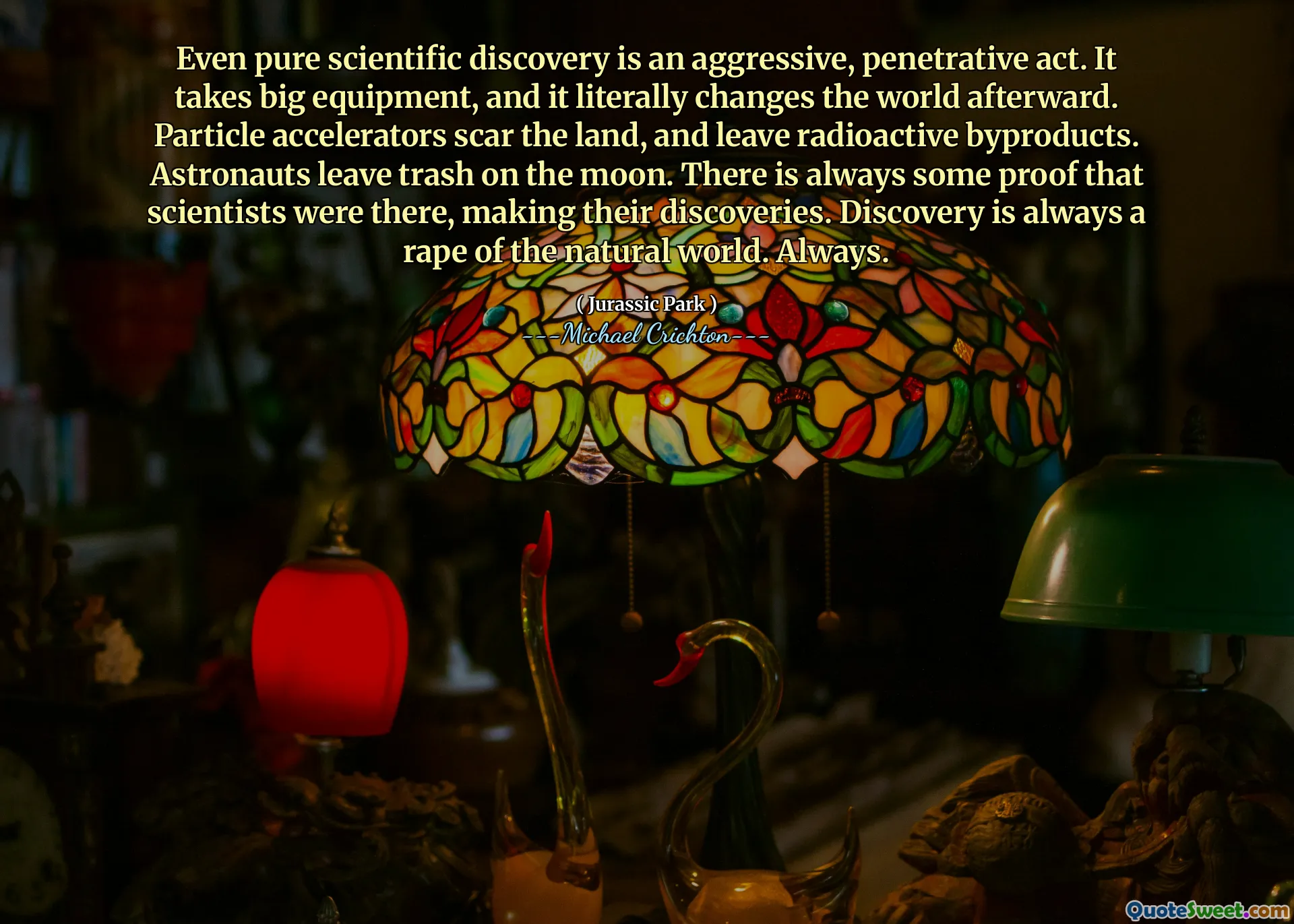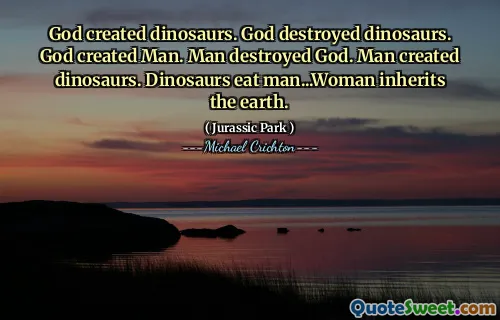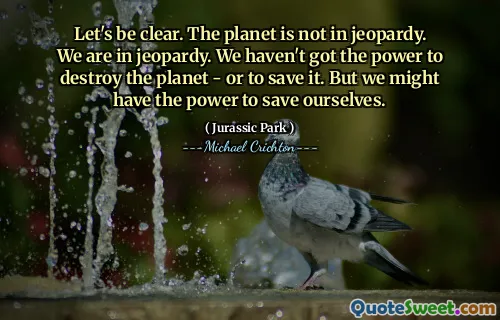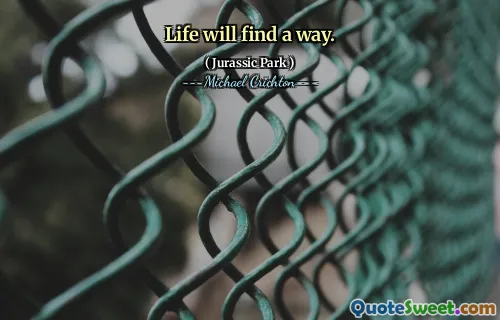
Even pure scientific discovery is an aggressive, penetrative act. It takes big equipment, and it literally changes the world afterward. Particle accelerators scar the land, and leave radioactive byproducts. Astronauts leave trash on the moon. There is always some proof that scientists were there, making their discoveries. Discovery is always a rape of the natural world. Always.
In Michael Crichton's "Jurassic Park," a compelling argument is made about the aggressive nature of scientific discovery. The author suggests that the quest for knowledge not only requires significant resources and technology, such as particle accelerators, but it also alters the environment in profound ways. The remnants of scientific endeavors, like radioactive waste and litter left in outer space, serve as evidence that these explorations come with a cost to the natural world.
This perspective frames scientific exploration as a disruptive force, implying that the pursuit of discovery often leads to a form of environmental degradation. Crichton uses strong imagery to convey that every advancement or finding carries with it a mark of disturbance, likening it to an aggressive act against nature. Ultimately, the text prompts reflection on the ethical implications of our quest for knowledge and the responsibilities that come with it.











